Has backpacking or camping by yourself always been a life dream of yours? Does solo adventure seem a bit intimating to you? I hope that by taking you through why soloing is such a fantastic experience and by giving you some practical tips on how to prepare, you will be ready and confident to try out your first solo trip!

Why Solo Adventure is Totally Awesome:
While I love to hike and camp with friends and family, I gotta tell you that my favourite experiences in the backcountry are the ones that I have done solo. I find that it allows you to build more skills in the wilderness because you are forced to act independently. Essentially, you are not relying on others to do tasks for you and you have to learn through trial and error and overcoming your own challenges. There is something so empowering about being able to navigate the backcountry with your own map reading skills, your own paddle strokes, and your own determination. I promise you that adventuring solo will give you more confidence in knowing that you are truly capable of doing anything you set your mind out to accomplish.
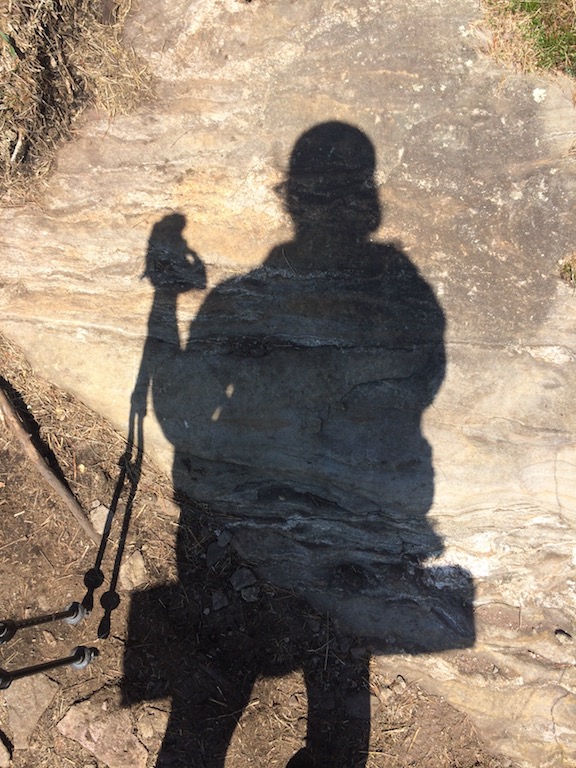
Recenter Yourself in Solitude
Being surrounded by nature in silence and truly soaking up the landscape and beauty around you can be a pretty neat experience. Spending time alone with your thoughts gives opportunity to focus and be fully present in the moment. The alone time can also be great in reflecting or sorting through some inner conflicts, decisions, feelings, that maybe you’ve been putting off dealing with. Solo trips can be the best opportunities to work on your own personal growth. I’ve found solo experiences can leave you feeling centred and refreshed. Afterwards, you’ll reflect on all you accomplished and you might think “Well, hell, I’m pretty bad ass aren’t I?”
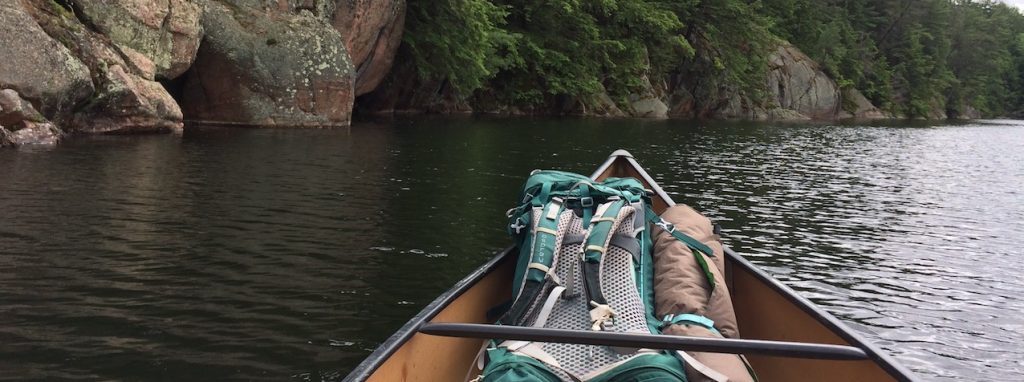
Convinced yet? I want to take you through 5 tips that I learned through personal experience that helped me in starting to adventure solo:
1. Practise makes perfect
Believe it or not, the first time I ever camped solo was right beside ‘civilization.’ When I was much younger, I set up my tent in a field at my family cottage to help me practise and get used to camping alone. I remember that night very vividly as I was nervous and woke up many times during the night as every bump had me thinking there was a bear coming to say hello. This set up was perfect because it allowed me to dismiss these fears and get comfortable with camping solo in a safe environment. I recommend trying out solo camping in your backyard, at your cottage, on your friends property, wherever you are the most safe for your first experience. If it takes you more than one practise session to get comfortable riding solo, that’s perfectly fine, remember that there is no rush.
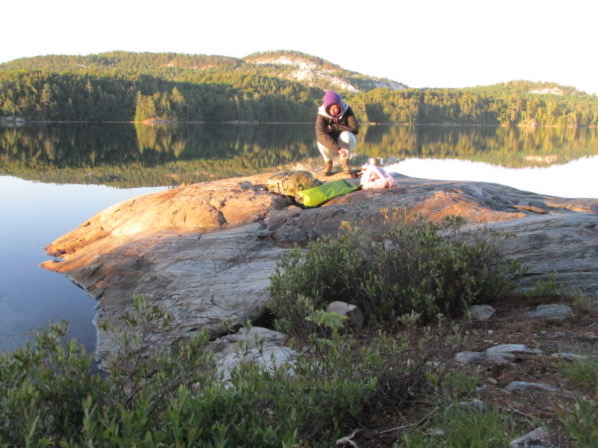
2. Test out your gear beforehand
There’s nothing more stressful than bringing a brand new piece of gear out into the backcountry with no idea how to use it. No cell service means no internet to access YouTube videos on how to put together your water filter, or set up your tent. And whoops, you probably left the instruction manual at home. Make sure you test out all your equipment before you go, practise setting up your tent, using your portable stove, tying up a bear hang, anything you will need to know for your expedition. This will make you feel more confident and familiar with your equipment, and saves any last minute stress in the backcountry.
3. Ensure your first solo trip is an easy, accessible, and short route
Be realistic with you limits and goals when starting out. 3 portages, 4 lakes to paddle, and a 5 night expedition is going to have you way over your head. While it’s great to have ambition, maybe plan that trip for when you have more experience in the backcountry. Having a super intense trip plan is only going to make you overwhelmed, not to mention puts your own safety at risk. My recommendation is plan a trip that requires a small amount of paddling, or hiking and a route that you are more familiar with. In addition, one or two nights will give you a shorter more doable timeframe. This will help you feel more comfortable in doing your first expedition solo.
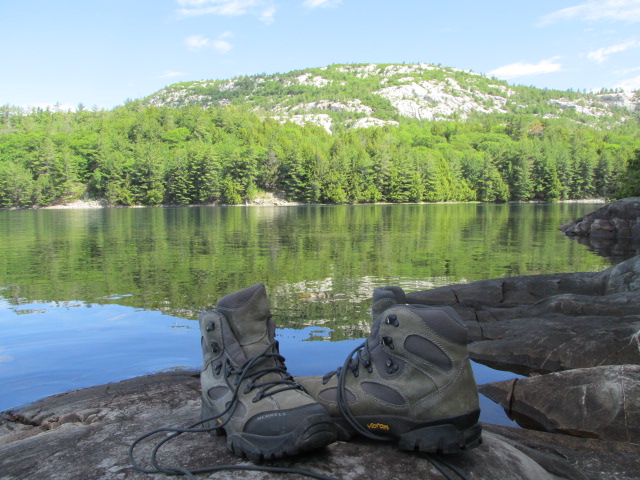
3. Research and trip plan
Before your trip, make sure to research everything there is to know about where you’ll be going, and how you will get there. Purchase a backcountry map and study it ahead of time to plan your exact route and a general estimate of how long it should take you. Make use of the thousands of online resources on the internet including videos on YouTube, outdoor blogs, and forums. Inform yourself on what gear you will need and what weather you’ll be expecting for your trip.
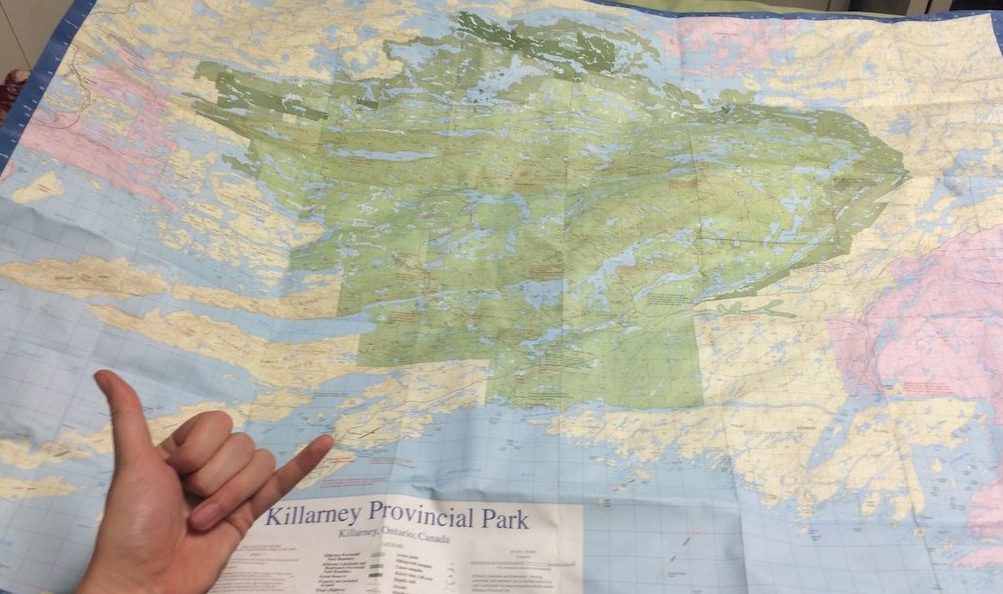
4. Don’t pack your gear the morning of your trip
I know from personal experience that packing your gear the morning of, will mean you will be rushing around, making you more likely to forget something. Packing well in advance, allows you to ensure everything is ready to go, and every item is double checked on your list. It will also allow you to leave early in the morning which will give you more travel time to get to your evening campsite or destination.
5. Tell your friends and family where your going and when you’ll be back
Inform someone close to you the plans for your trip including when you’ll be leaving, your trip route and your day of return. This will ensure your safety if something were to happen while you are out in the backcountry. It will also give you peace of mind, allowing you to relax and enjoy your trip.
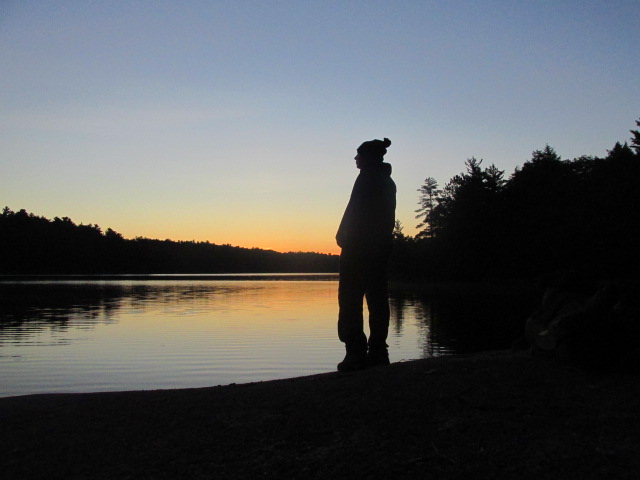
I hope all of these tips help you in planning your first solo trip in the backcountry. Remember to relax, have fun, and take the time to enjoy every moment. Allow yourself to make mistakes, after all that’s how we learn and develop our skills. Remember that confidence might take time, keep at it and continue pushing yourself to step outside your comfort zone. I promise you that it will bring you a totally different experience of solitude and self empowerment.
Good luck on your journey and Happy Trails.
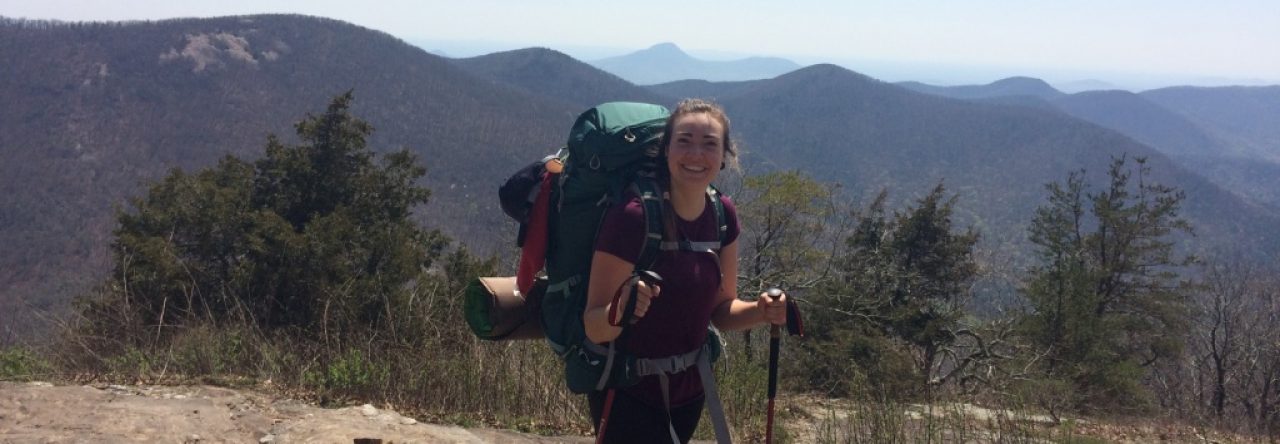
Leave a Reply